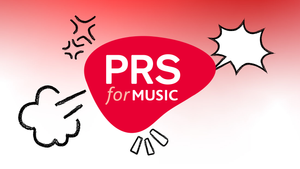UK collecting society PRS has accused the majority of managers and venues of being “inefficient and “unprofessional”. That’s according to the songwriters who are suing the society over the way it manages the licensing of live music.
The group of songwriters - which includes Robert Fripp and Jim and William Reid from The Jesus And Mary Chain - sued PRS in June over the allegedly “unreasonable and unnecessary hurdles” it has put in place when songwriters want to directly license their rights for live shows.
Their lawsuit also criticises the PRS Major Live Concerts Service, or MLCS, which is available for artists performing at venues with a capacity in excess of 5000 and provides various benefits, including lower admin fees. The lawsuit says PRS shouldn’t be offering superstar writers a more preferential service.
In a recent court filing responding to the lawsuit, PRS justifies its MLCS scheme on the basis that shows of this scale “tend to be administered efficiently by professional rightholders, managers and venues with whom PRS has strong working relationships”.
The songwriters have issued a new statement responding to that filing. They say they find this justification “puzzling” because it implies “those involved in smaller-scale live events are unprofessional and inefficient - otherwise, they too would benefit from vastly reduced administration fees”.
The lower admin fee charged to writers eligible for the MLCS results, say the writers, in “a reverse Robin Hood” where artists playing arena and stadium level venues are “subsidised by the rest of the PRS membership”.
“That PRS can apparently try to justify such rank unfairness by claiming large-scale live events are run more efficiently or professionally than smaller shows is as insulting as it is absurd and self-serving”, their statement continues.
“The UK has many brilliant music venues under 5000 capacity. They are the lifeblood of our music culture. Equally, there are countless music managers who efficiently and professionally manage the rights of PRS writers whose works are performed in those smaller venues”.
They then add, “For PRS to suggest those writers should be disadvantaged and discriminated against merely because they are smaller is just wrong”.
The lawsuit filed by Fripp and the other songwriters sets out a number of grievances with PRS.
The core complaint relates to the “unreasonable and unnecessary hurdles” allegedly put in place when PRS members decide to negotiate direct licences with concert promoters covering performances of their songs, rather than including their works in blanket live music licence administered by the society.
Although the rights for performing songs live are usually licensed by PRS, members can choose to opt out of the society’s blanket licences in some scenarios. By opting out in this way, members or their representatives can then enter into direct deals with promoters and other users of music.
This can reduce the admin costs, because they don’t have to pay the commission that would be charged by PRS, but also speeds up how quickly they receive payment for that use of their music. These can both have a big impact on cash flow for large international tours, for example.
That said, opting out of the blanket and doing those direct licensing deals for the performing rights in songs requires quite a bit of admin, so most writers who go that route work with specialist agencies.
One of those, PACE Rights Management, is also involved in this lawsuit, and it says PRS has created rules to make direct licensing deals for live shows more difficult than they need to be.
In addition to that core complaint, the lawsuit also criticises the lack of transparency about what fees are charged across the global collective licensing system, as well as taking issue with the MLCS, and presenting the argument that a collecting society shouldn’t give superstars preferential treatment.
The new statement raises another issue with the MLCS. Not only do qualifying artists pay much lower admin fees, the writers claim, but PRS also “decided to appropriate significant sums of live black box income into MLCS distributions”.
The ‘black box’ usually refers to the money collected by collecting societies where there isn’t the necessary usage data to accurately distribute income to the writers of the specific songs that have been performed. The society has to come up with distribution rules to figure out how to pay out that money and those rules frequently prove controversial.
The writers involved in this lawsuit say that PRS’s own documents state that, in 2019, the relevant “unclaimed pot” of income was £2.7 million, “of which £1.45 million was allocated to MLCS”. This, they add, is unfair.
Given that the licensing of shows that qualify for the MLCS scheme are managed in a much more hands-on way, PRS should have full visibility of exactly what revenue is coming in and going out on shows under that scheme, and so should not be allocating any more money from the black box - and certainly not more than half of the black box.
“Despite the high likelihood that the licence fees [allocated to the black box] were not generated from large-scale live events”, say the writers, £1.45 million of the black box was allocated to the MLCS. “At a time when grassroots live music is in crisis, it seems incredible that PRS would take this decision to further disadvantage smaller writers”.
PRS denies all the allegations of bad practice and wrong-doing made in the lawsuit filed by Fripp, the Reids and PACE, and continues to fight the litigation.

